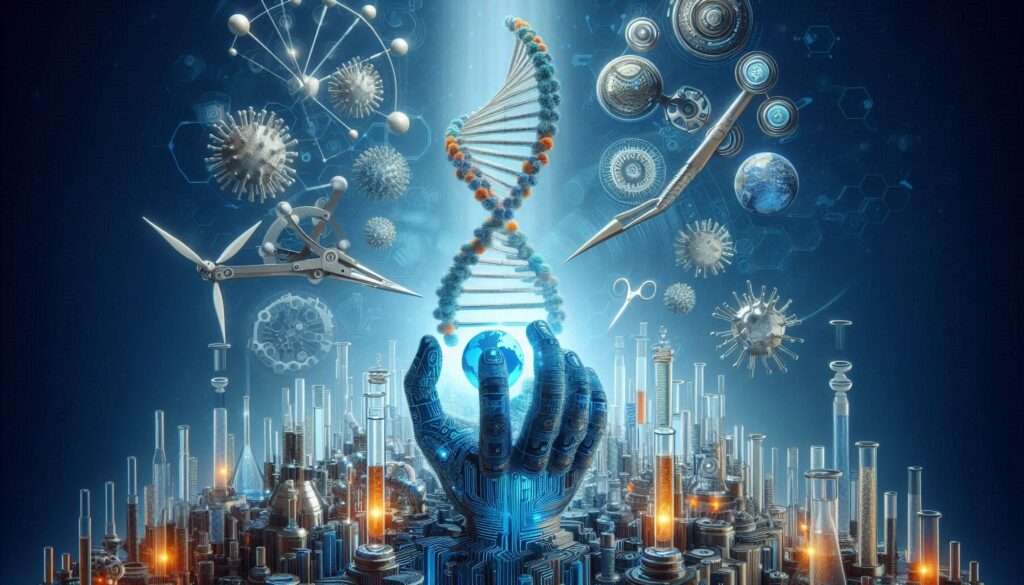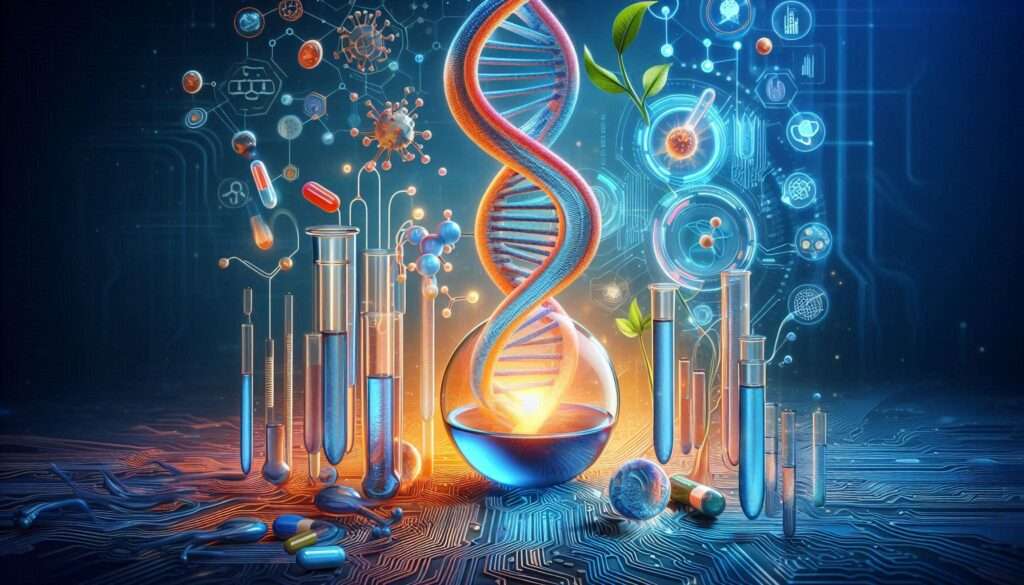Introduction to Biotech Innovations
In recent years, the field of biotechnology has experienced groundbreaking advancements. Among these, CRISPR and genetic engineering stand out as two of the most transformative innovations. These technologies have the potential to revolutionize medicine, agriculture, and various other industries.

What is CRISPR?
Understanding CRISPR Technology
CRISPR, short for Clustered Regularly Interspaced Short Palindromic Repeats, is a powerful tool for editing genomes. It allows scientists to alter DNA sequences and modify gene functions with unprecedented precision. Discovered as part of the bacterial immune system, CRISPR has been adapted for use in various genetic engineering applications.
How CRISPR Works
CRISPR technology utilizes a guide RNA (gRNA) to locate the specific DNA sequence to be edited. Once the target sequence is identified, the Cas9 enzyme acts as molecular scissors to cut the DNA at the desired location. This process enables the addition, deletion, or modification of genetic material.

Applications of CRISPR
Medical Advancements
CRISPR has created new possibilities for addressing genetic disorders. By correcting faulty genes, this technology has the potential to cure conditions like cystic fibrosis, sickle cell anemia, and muscular dystrophy. Furthermore, CRISPR is being explored for its ability to combat cancer by targeting and eliminating cancerous cells.
Agricultural Improvements
In agriculture, CRISPR is being used to develop crops with enhanced traits such as improved yield, pest resistance, and drought tolerance. These advancements not only increase food security but also promote sustainable farming practices.

Genetic Engineering: A Broader Perspective
What is Genetic Engineering?
Genetic engineering involves various methods for altering an organism’s DNA. This includes recombinant DNA technology, gene cloning, and genome editing. By altering the genetic code, scientists can create organisms with desirable traits and capabilities.
Key Techniques in Genetic Engineering
- Recombinant DNA Technology: This involves combining DNA from different organisms to create new genetic combinations.
- Gene Cloning: This process produces copies of genes or segments of DNA, allowing for the study and utilization of specific genes.
- Genome Editing: Techniques like CRISPR are used to precisely edit specific genes within an organism’s genome.
Impacts of Genetic Engineering
Medical Innovations
Genetic engineering has led to the development of gene therapies, personalized medicine, and advanced diagnostic tools. By understanding and manipulating genes, scientists can create targeted treatments for various diseases, improving patient outcomes and reducing side effects.
Environmental and Industrial Applications
In addition to healthcare, genetic engineering plays a crucial role in environmental conservation and industrial biotechnology. Engineered microbes are used for bioremediation, breaking down pollutants and toxins in the environment. In industry, genetically modified organisms (GMOs) produce biofuels, pharmaceuticals, and other valuable products.

Ethical Considerations
Balancing Innovation and Responsibility
While CRISPR and genetic engineering offer immense potential, they also raise ethical questions. Concerns include the unintended consequences of genetic modifications, the potential for designer babies, and the ecological impact of releasing genetically modified organisms into the wild. It is essential to balance innovation with ethical considerations, ensuring responsible use of these technologies.
The Future of CRISPR and Genetic Engineering
Promising Horizons
The future of CRISPR and genetic engineering is incredibly promising. Ongoing research aims to refine these technologies, making them safer and more efficient. As we continue to unlock the potential of the genome, these innovations will undoubtedly play a pivotal role in shaping the future of medicine, agriculture, and beyond.
Conclusion
CRISPR and genetic engineering represent the forefront of biotech innovations. Their ability to precisely alter genetic material opens up a world of possibilities, from curing genetic diseases to creating sustainable agricultural practices. As we navigate the ethical landscape, these technologies will continue to transform our world, offering solutions to some of the most pressing challenges of our time.
Please Stay Connect with us at SkillSphare.com

Thomas Grey, a veterinary medicine student with a diverse educational background, brings a distinctive perspective to sports writing. Covering sports and analysis for SkillSphare, he delivers engaging content driven by his deep passion for athletics and keen understanding of the field.

